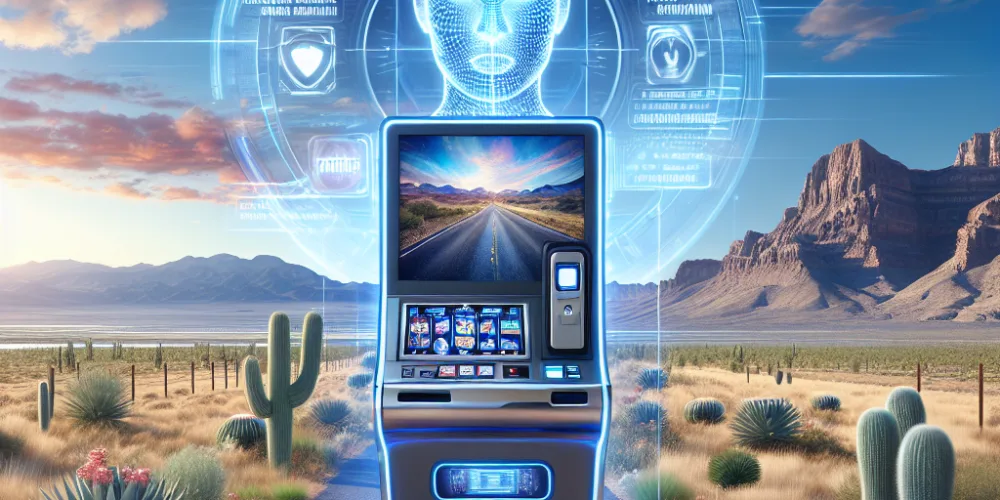In a pioneering move set to reshape gambling demographics, Nevada has officially launched a new age-verification technology embedded within slot machines across the state. This development, which rolled out early this week, aims to strictly enforce the age restriction policy, preventing underage individuals from gambling and enhancing compliance with state gambling regulations.
As one of the world’s leading gambling hubs, Nevada’s introduction of biometric technology to its slot machines marks a significant step in addressing ongoing concerns about underage gambling. This innovative system utilizes a combination of facial recognition and linked governmental identity records to ensure that all users meet the state’s legal gambling age of 21.
The technology was developed by TechSecure, a leader in biometric security systems, after significant research and trials. Early this year, several casinos in Las Vegas participated in a pilot program that demonstrated not only the technology’s effectiveness in verifying age but also its ability to integrate seamlessly with existing casino management systems.
Casino operators have welcomed the new system with open arms. “This technology allows us not only to comply with laws but to ensure a safe gambling environment for our patrons,” notes Michael Hanlon, general manager of the Silver Palace Casino in Las Vegas. “It’s efficient and customer-friendly, reducing the awkwardness of manual ID checks and maintaining the flow of game play.”
The implementation comes at a time when digital solutions are becoming increasingly prevalent in various sectors, including gaming. With casino floors being high traffic environments, the need for efficient and non-intrusive age verification methods has never been more critical. The biometric system only requires patrons to look into a small embedded camera at the machine before initiating play. The software then quickly verifies the player’s age without needing physical ID cards or casino personnel intervention.
This advancement also plays a significant role in helping casinos manage liabilities and avoid hefty fines associated with non-compliance to age restrictions. “The penalties for allowing underage gambling are severe, and this technology provides us with peace of mind, knowing that we are fully compliant with the law,” said Hanlon.
The state’s Gaming Control Board was instrumental in overseeing the adoption of this technology. A spokesperson for the Board explained that this step is part of broader efforts to modernize gambling operations throughout Nevada. “By leveraging technology, we can ensure compliance, enhance security, and improve the gambling experience. It’s about keeping the industry vibrant and responsive to societal needs.”
Privacy advocates have been somewhat wary of the technology, raising concerns about data security and personal privacy. However, TechSecure assures that the technology is designed with robust security features to protect personal information. According to the firm, no personal data is stored by the casino, and the system uses encryption to secure data transmission to the centralized state database.
The technology will be rolled out in phases, with a completion goal set for the end of the year. Casinos across the state are scheduled to adopt these machines incrementally, based on their individual operational capacities and customer traffic.
As this technology takes hold, it not only points to a future where gambling is safer and more secure but also showcases Nevada’s commitment to leading the charge in casino innovation. This strategic move not only enhances regulatory compliance but also improves operational efficiencies, setting a new standard in the global casino and gambling industry.

David Farbacu is a seasoned writer with a passion for games, gaming, casinos, and Xbox. With a wealth of experience in the industry, David brings insightful reviews, comprehensive guides, and engaging articles that cater to both casual gamers and hardcore enthusiasts. His expertise spans across various gaming platforms and genres, making him a go-to source for the latest trends and developments in the gaming world.

